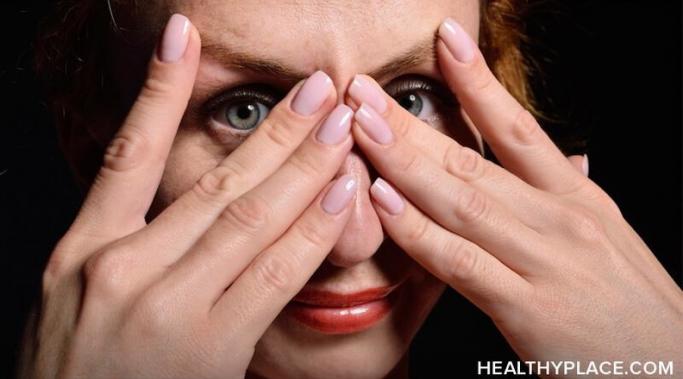Blogs
Overcoming challenges when you live with bipolar is part of self-care. As someone living with bipolar 2, I have realized the importance of acknowledging my fears and taking the proper steps to overcome them.
Who can get an eating disorder? The answer may surprise you because, for decades, the cultural perception of eating disorders has been whitewashed in the media and characterized as an issue that only affects Caucasian, heterosexual women. But this narrow understanding is biased, warped, and problematic. In reality, around 30 million Americans struggle with disordered eating behaviors, and just a fraction of this number are actually white. These illnesses transcend racial, ethnic, gender, and sexual orientation boundaries, causing a universal epidemic which threatens every demographic. But the prevailing mythos that eating disorders are only present in white culture negates the experience of marginalized people and often alienates them from seeking treatment. So how can society address this whitewashed perception of eating disorders and broaden the narrative to include those from other backgrounds too? Who can get an eating disorder? Anyone.
After my father's death, it was really hard for me to celebrate his birthday. Celebrations are typically happy times you spend honoring people who are alive. For several years, not being able to celebrate with my father on his birthday made me not want to celebrate at all. But a few years ago, I realized that I could honor him by celebrating his life from when he was alive. Here are five ways I honored him this year.
My diagnosis validates my experience and makes my mental illness feel real. Schizoaffective disorder accurately describes my symptoms. I wanted a name and to know it can be treated.
If I were to ask you to picture someone who is experiencing suicidal thoughts, what would you imagine? My guess is someone wearing dark clothes with a haggard expression and overall looking like he or she are down on his or her luck. The image of someone who seems to have it all together might not come to mind at all. But, like mental illness, suicidal thoughts aren't reserved only for those whose circumstances "warrant" it. Suicidal ideation can and does affect anyone at any time, even when life is otherwise good.
The suicide of a loved one, or suicide in general, is a tough thing to talk about. Even sitting here typing, it is a triggering topic for me. Not only have I been close to suicide myself and wished for death more times than I can count, I have also had to deal with the suicides of a couple of people I have been close to. I can only imagine that for many of you out there, it is the same.
These five tips to reduce anxiety work because when you use them, you don't struggle against the anxiety. When you want to reduce anxiety, sometimes you have to let yourself be anxious. This may seem horrifying, but it works. When you stop fighting anxiety, you free yourself to shift your attention away from anxiety and onto other things. Letting yourself be anxious, though, doesn't mean letting anxiety run rampant, unchecked, through your mind and body. There are structured ways to allow anxiety to exist while you move forward. Use the following five tips to reduce anxiety by letting yourself be anxious.
Should you share your suicidal thoughts? How will the choice to share affect your depression? Whether we face suicidal thoughts or have had one or more suicide attempts, the decision of whether or not to share these experiences affects us and how we deal with our depression.
How can abuse lead to suicidal thoughts? Men and women in the depths of an abusive relationship often find themselves considering options they never anticipated they would. Abuse can take otherwise happy, outgoing, social and optimistic people and beat them down into a shell of who they once were. Both physical and verbal attacks have the power to do this to a man or a woman. Read on to learn how abuse can lead to suicidal thoughts.
I’ve consigned myself to the fact that my anxiety will never go away. Part of it may be due to genetics –- another part may be due to how my brain is wired -– but another part, and one that we need to talk about more often, is that American society itself creates anxiety symptoms.









